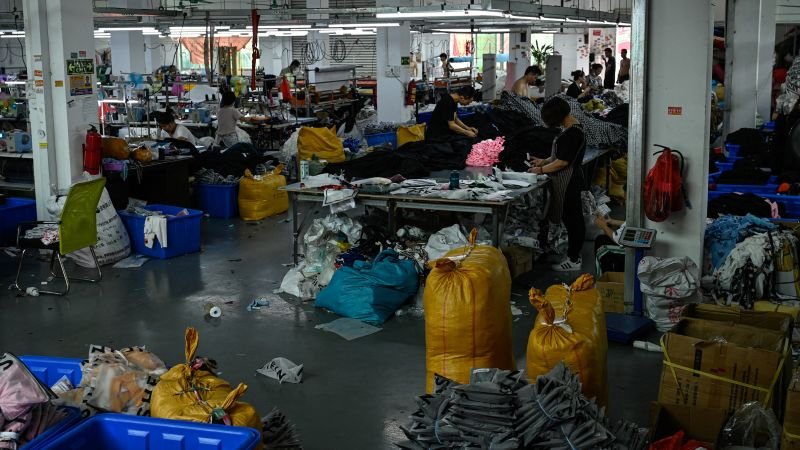
New York
CNN
—
The Trump administration on Friday delayed the suspension of the so-called de minimis provision, which allows packages worth less than $800 to enter the country duty-free, a move that helps low-cost shopping sites from China that sell everything from fast fashion to furniture.
The delay will last until “adequate systems are in place” for the Commerce Department “to fully and expediently process and collect tariff revenue,” according to a new executive action announced on Friday.
A suspension of the long-standing de minimis provision would have had dire effects on Chinese e-commerce sites like Shein, Temu and Aliexpress — as well as for Amazon, eBay, Etsy and other retailers that ship from China.
The provision was part of Trump’s announcement of 10% across-the-board tariffs on China this week, a move that, along with retaliatory tariffs from China, could reshape global trade.
Chinese e-commerce sites have built their gargantuan business models around this exemption. The relaxed restrictions and tax exemptions on cheap products have allowed more than a billion packages to pour in at a low-cost price for consumers looking for deals on clothing to household goods.
The delay is another example of Trump’s policies meeting reality, Clark Packard, a research fellow at the libertarian Cato Institute, told CNN.
Experts previously told CNN the suspension would overwhelm US Customs and Border Protection. More than 80% of total US e-commerce shipments in 2022 were de minimis imports, according to a congressional research report.
“You would have to have a lot more people on the ground,” Packard said. “The reality is that right now Customs and Border Protection is just not qualified or capable of handling this because of the volume of packages.
The executive order did not say how long the delay would last.
Packard said there is no estimation for how long it would take. Logistically, he said it would take at least a year to set up a fully functional system, but the delay could also be a trade negotiation tactic.
To get around the exemption’s disappearance, companies can expand their warehouses in the United States, Christopher Tang, a professor of global supply chain management at the University of California, Los Angeles, previously told CNN.
They can ship bulk amounts through customs and then reship products across the United States, but customers will still have to pay the import tax.


